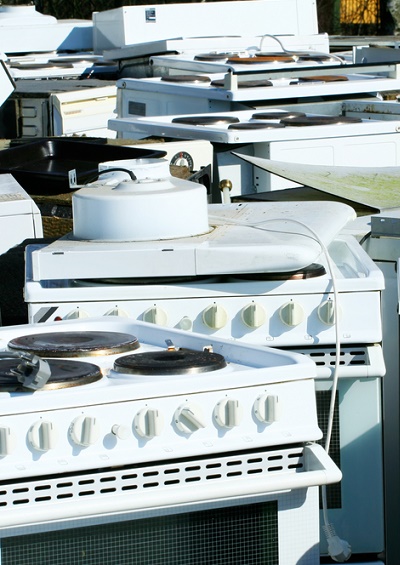Sizing Up Nigeria’s Power Needs
Which common appliance uses about as much electricity in a year as the average Nigerian does?
May 10, 2014

Americans are known to have an energy-intensive lifestyle, with the average citizen consuming over 13,000 kilowatt-hours of electricity per year.
But in Nigeria, one of Africa’s largest economies, power consumption is dramatically lower.
We wonder: Which of the following common appliances uses about as much electricity in a year as the average Nigerian?
A. Air conditioner
B. Refrigerator
C. Microwave
D. Coffeemaker
A. Air conditioner is not correct.
Despite the fact that Nigeria is a hot, tropical climate, the average person does not have access to enough affordable electricity — if any at all — to power a window-unit air conditioner, which consumes about 1,000 kilowatt-hours of power per year.
Even in a middle-income country such as Tunisia or Cuba, the average person uses only about 1,300 kilowatt-hours of electricity per year. That would allow them to use an air conditioner, but not much else.
B. Refrigerator is not correct.
A new refrigerator uses about the same amount of electricity in a year (about 450 kilowater-hours) as the average person in Pakistan, the world’s sixth most-populous country.
Besides allowing everyone the refreshment of a cold bottle of Coke, refrigerators are key time-saving, money-saving, and even life-saving devices. They cut down on food waste and enable better nutrition by keeping food fresh.
Moreover, health clinics need to have reliable power to refrigerate vaccines and other pharmaceuticals. Currently, an estimated 60% of clinics in the developing world lack such electricity.
C. Microwave is correct.
With 169 million people, Nigeria is the world’s fifth most-populous country and the largest in Africa. Despite having the second-largest economy in Africa, its citizens consume only 135 kilowatt-hours of electricity on average per year. This is one one-hundredth of the average annual consumption in the United States.
As more and more Nigerians benefit from increased prosperity and economic growth, they still do not have access the electricity needed to satisfy a modern lifestyle. The Center for Global Development estimates current unmet demand in Nigeria at nine times its current level of consumption.
Nigeria has some of Africa’s richest oil and natural gas reserves. But its poor electricity infrastructure means that it cannot currently generate and distribute the power it could potentially generate from those resources to its citizens.
Increasing investment in this infrastructure, with the support of international efforts like the United States’ Power Africa Initiative, could help increase generation and meet demand.
D. Coffeemaker is not correct.
The average Nigerian consumes about twice as much power as the 70 kilowatt-hours it takes to run a coffeemaker for a year. But several African countries — including Tanzania, Liberia and Ethiopia — have average yearly electricity consumption of 100 kilowatt-hours or less.
That is barely enough electricity to power a small appliance or a couple of light bulbs for a year.
Strikingly, 100 kilowatt-hours is the level defined by the International Energy Agency as the minimum threshold for “modern energy access.” Nevertheless, that is a small fraction of the 13,250 kilowatt-hours the average American enjoys or the 7,000 kilowatt-hours the average European consumes.
Editor’s note: This Globalist Quiz is based on data and analysis provided by Madeleine Gleave of the Center for Global Development. It was broadcast on American Public Media’s Marketplace Morning Report on May 9, 2014.
Takeaways
Which common appliance uses about as much electricity in a year as the average Nigerian?
Author
The Globalist
Read previous

The Best Mother’s Day Gift
May 10, 2014